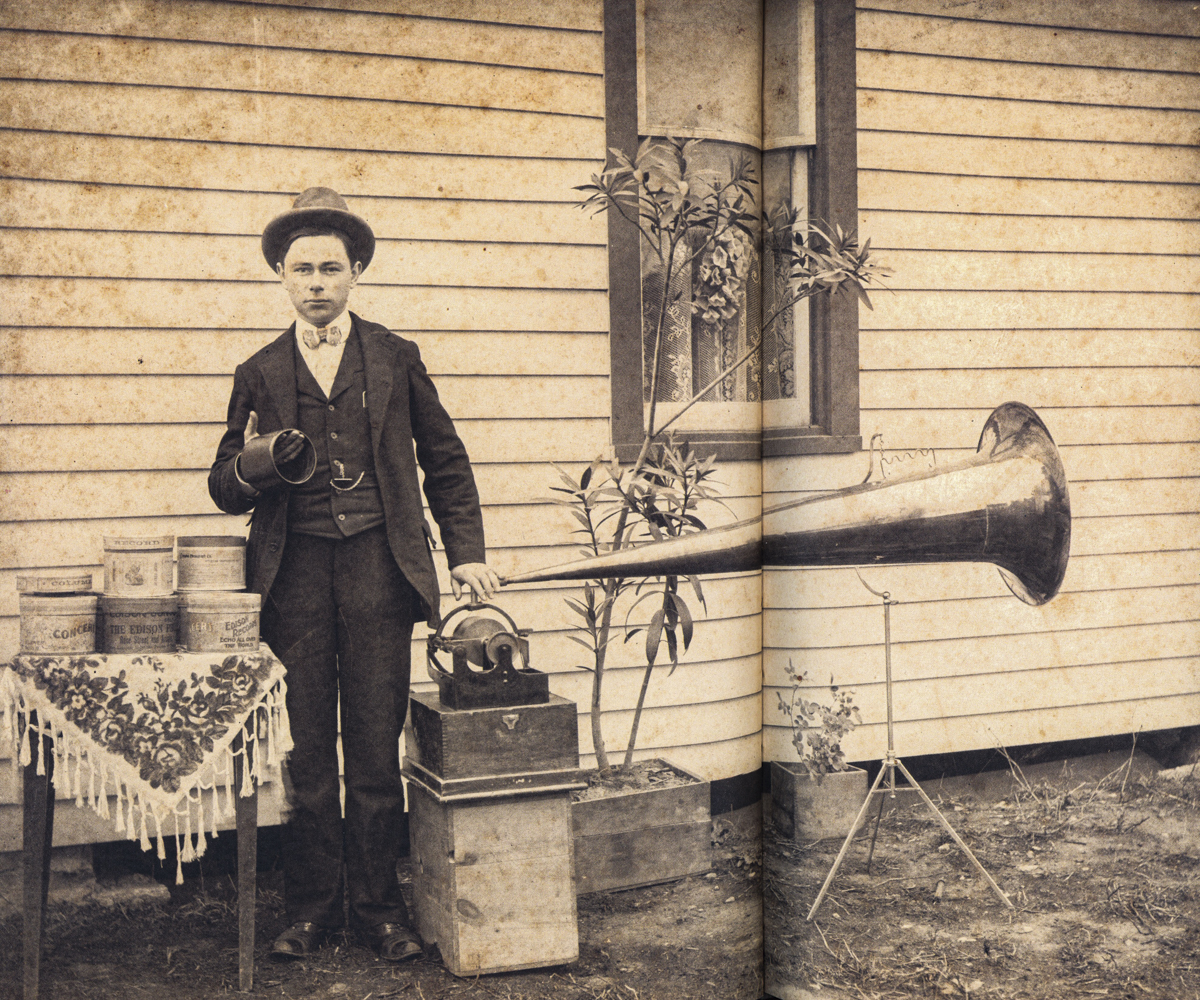Now and again I discover something on my shelves that I’d forgotten about, or never really assimilated when I acquired it, and Light is Cast upon current concerns in unexpected and even downright magical ways. Today’s case-in-point is a strange and altogether marvelous book with two CDs: steve roden’s …i listen to the wind that obliterates my traces: music in vernacular photographs (1880-1955) (2011). The sort of thing that one acquires sensing its talismanic power and knowing it will never be seen again. The photographs are deliciously chosen and arrayed:

…and the sparse (and all-lower-case) text is incisive. The two CDs contain a very eclectic menu of remastered 78 RPM disks, many of which are new to me, and which complement the photographs brilliantly. And sure enough, YouTube comes through with a tantalizing peek:
But it was a chunk of text that really brought me up short, being a perfect distillation of things I’ve been thinking about collections, collecting, and collectors. Here it is, just as set down, lower-case and all:
if you have this love of inconsiderable things and seek quite simply, as one who serves, to win the confidence of what seems poor: then everything will become easier, more coherent and somehow more conciliatory for you, not in your intellect, perhaps, which lags marveling behind, but in your inmost consciousness, waking and cognizance.
ranier maria rilke
letters to a young poet
of course, i too have sat alone many a night amongst a pile of books, a stack of records or a box of old photographs: conversing, organizing, arranging, connecting, disconnecting and listening to the voices of these inconsiderable things. in such moments i begin to form a world, seeing (or hearing) each thing shift from an individual star towards part of a larger constellation. when new paths between things are revealed, new images are formed, and the relationship of single objects to each other becomes more complex, more overwhelming and less defined.
as long as one is able to interpret and re-interpret the relationship between the objects on the table, the collection remains alive in one’s inmost consciousness, enabling the collector to make deep intuitive connections that leave the intellect to lag marveling behind, a collection should not have to conform to some overbearing logical and finite sense of completion, as much as it should have the potential to exist in a state of flux and evolution, a collection guided by openness is not afraid of imperfection, for an imperfect collection necessitates deeper questions than one which simply attempts to complete a checklist.
certainly one must have determined criteria for addition and inclusion, but th[ose] criteria should also be shifting and changing as old rules are allowed to be broken and new rules are allowed to be born. previously unsought discoveries should have permission to shift things, allowing the collection to be a conversation whose guiding principles can be built up and taken apart in the service of both expansion and contraction (as well as rigor, focus, obsession, passion and vision). building a collection should be a personal endeavor, where value is determined by the gatherer rather than by the marketplace.
the painter arthur dove said that everything an artist makes is a self-portrait, and i tend to think that most collections reflect a similar view. the best collections and the most visionary collectors bring objects together that do not necessarily seem comfortable with each other at first glance, yet upon deeper inspection there seemingly disparate parts reveal a consistency of thought rather than a consistency of form. such cases have the potential to reveal the complex inner workings of the gatherer.
*****
He’s got my number, sure enough. As has Minor White:
into everything he sees,
identifying himself with
everything
in order to know and feel it better
All photographs are
self-portraits.
Pingback: self/no-self | oookblog2